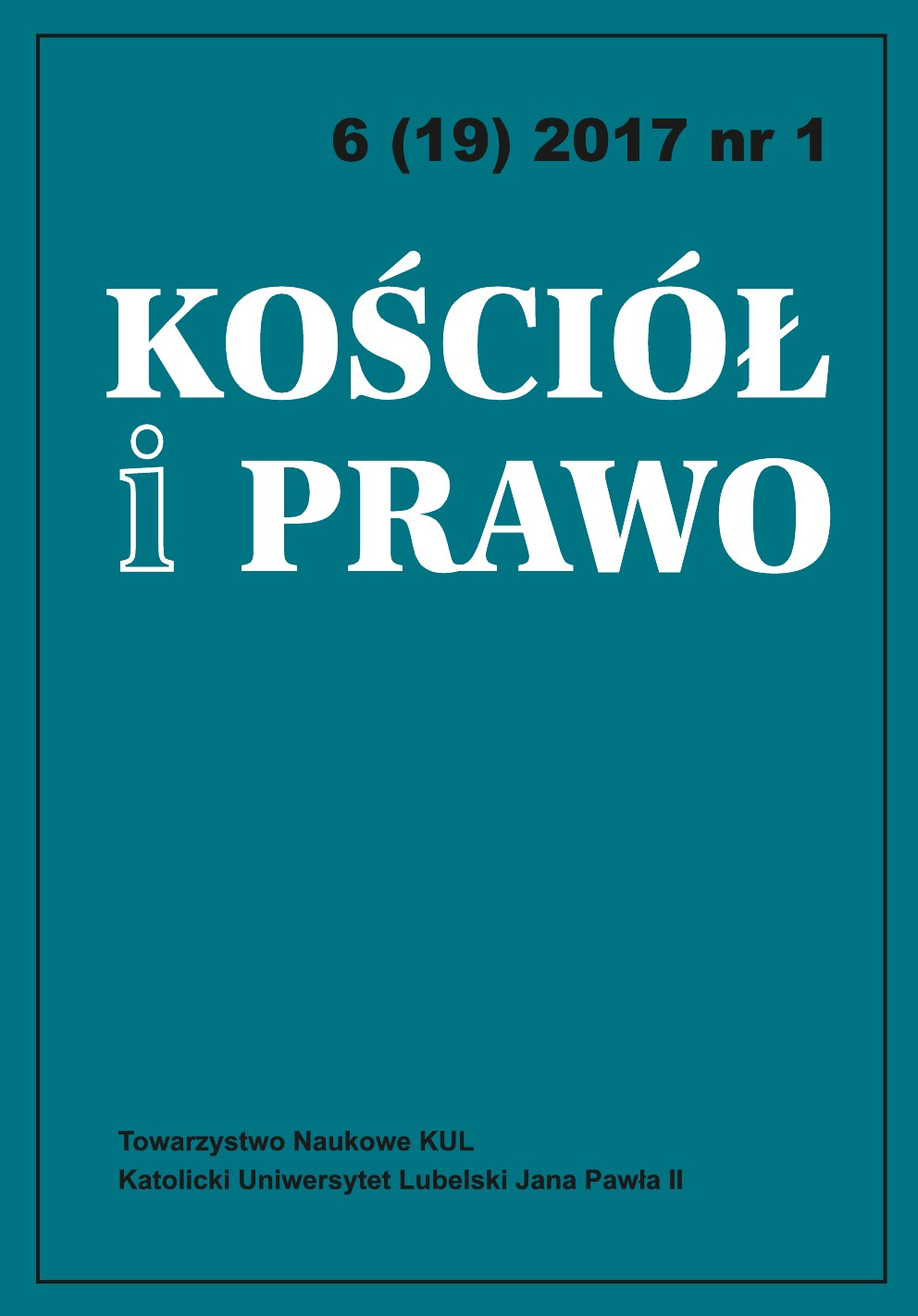Tajemnica spowiedzi w prawie kanonicznym
The Seal of Confession in Canon Law
Author(s): Natalia GrochowskaSubject(s): Law, Constitution, Jurisprudence, Canon Law / Church Law
Published by: Towarzystwo Naukowe KUL & Katolicki Uniwersytet Lubelski Jana Pawła II
Keywords: seal; confession; inviolable; reconciliation; penitent
Summary/Abstract: The seal of confession should be considered in the context of the Sacrament of Penance and Reconciliation. The seal of confession involves information that was revealed during the individual confession while the penitent reveals his sins to the priest. The seal of confession in canon law is absolute and inviolable. It is stated that there is no authority that is able to let the priest betray the seal of confession. Betraying the seal of confession is considered as a breach of the law and as a consequence it is sanctioned by appropriate penalties. The legislator in can. 1388 of the 1983 Code of Canon Law distinguishes between direct and indirect form violating seal of confession. Both are subject of the mandatory punishment. As a result of direct betrayal of seal of confession the priest is excommunicated latae sententiae (this punishment is reserved to the Apostolic See), while the indirect betrayal of seal of confession should be punished with an appropriate penalty. Moreover, the seal of confession and the crime of violating the seal of confession is regulated also by Normae de gravioribus delictis (2001) and Normae de delictis reservatis (2010).
Journal: Kościół i Prawo
- Issue Year: 6/2017
- Issue No: 1
- Page Range: 115-131
- Page Count: 17
- Language: Polish

